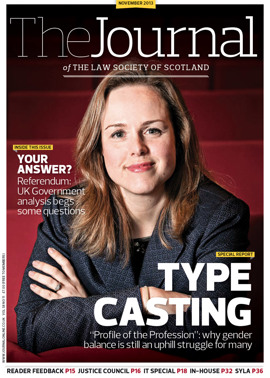"Start the conversation"
A television advertising campaign in the first week of December will encourage people to consider granting continuing and/or welfare powers of attorney. The advertisements will be seen in STV’s West of Scotland area. The slogan “Start the conversation” aims to encourage people to raise and discuss the possibility of granting powers of attorney while they are together over the festive season. The campaign is funded by Glasgow City Council as part of an ongoing collaboration among the council, NHS Greater Glasgow & Clyde, and the Adrian Ward Centre for adult incapacity and related areas of law, hosted by T C Young Turnbull & Ward, Solicitors.
The first major project of the collaboration was a conference for health and social work professionals and administrators in Glasgow City Chambers on 8 March 2013. The conference title “Why am I still here?” referred to people remaining in hospital only because they could not properly be discharged to suitable accommodation – normally to a nursing or care home – without a guardianship or intervention order, and who accordingly remained inappropriately and unnecessarily in hospital pending completion of court procedures. The conference aimed to enhance understanding of relevant law and best practice, the range of available alternatives in our adult incapacity law, how to use them more effectively and appropriately, and some major current issues.
Encouragement to make use of available procedures can be seen as reflected, for example, in the recent case of Minute for Directions by Dr MF, Glasgow Sheriff Court, 19 September 2013. Upon application by a consultant psychiatrist, Sheriff Baird granted an order under s 3(3) of the Adults with Incapacity (Scotland) Act 2000 directing a guardian to consent to the transfer to an NHS care home of an adult who, by the time of the hearing, had already been in an acute hospital for over a year after being certified as suitable for discharge.
The main lesson of the conference, however, was all the advantages of powers of attorney whereby a capable person puts in place the arrangements and appointment to be immediately activated when need may arise. Delays and costs of other procedures are avoided, particularly the burdens upon local authorities who (under the Act of 2000) have an obligation to apply for guardianship or intervention orders where they are needed and no one else is seeking them. The costs of the TV campaign are likely to be more than outweighed by savings, quite apart from the human value of facilitating prompt decision-making when required under arrangements established by people themselves.
Solicitors practising in any of the areas reached by the television campaign may experience a subsequent increase in requests to assist in establishing powers of attorney. Use of electronic power of attorney registration will avoid the risk of registration delays as the fixed resources of the Office of the Public Guardian cope with any increase in registrations.
In this issue
- Obituary: Professor Ian Willock
- Competition damages – a rocky road ahead?
- Heart of the matter
- Law reform on track
- Turning back the clock
- Golf and the right to roam
- Reading for pleasure
- Opinion column: Ros McInnes
- Book reviews
- Profile
- President's column
- Fee review open to views
- Some more equal than others
- Balancing act
- Paving the road to reform
- Blue sky thinking?
- A singular status
- You pay your money
- Acceptable BYOD use
- Interesting times still
- Aliment in vogue again
- Scottish Solicitors' Discipline Tribunal
- Speakers rise creatively to the challenge
- Why environmental indemnity?
- SYLA presents...
- How not to win business: a guide for professionals
- File reviews - how they can help
- Ask Ash
- Making the Act work
- Law reform roundup
- From the Brussels office
- Fraud alert revived
- "Start the conversation"






